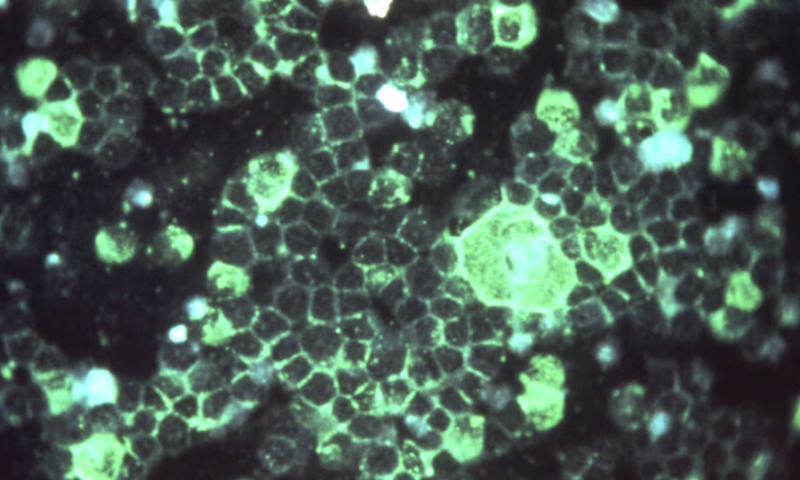Pfizer has halted a pivotal trial of its respiratory syncytial virus (RSV) vaccine candidate early for efficacy, positioning the Big Pharma to file for approval by the end of the year. But with the study only meeting one of its two primary endpoints, the top-line result leaves scope to question how Pfizer will fare against AstraZeneca and Sanofi’s rival antibody.
At the preplanned interim efficacy analysis, Pfizer linked the administration of its bivalent RSV prefusion vaccine candidate RSVpreF, also known as PF-06928316, during pregnancy to a significant reduction in the rate of severe medically attended lower respiratory tract illness (MA-LRTI) in newborns. The efficacy against severe MA-LRTI was 81.8% through the first 90 days of life, falling to 69.4% over the six-month follow-up period.
The result was enough for the study to meet one of its co-primary endpoints. However, the study came up short against the second co-primary endpoint, which looked at the effect of RSVpreF on the rate of all severities of MA-LRTI.
Pfizer called the 57.1% efficacy for MA-LRTI over the first 90 days of life clinically meaningful. But the figure, which slipped to 51.3% over the six-month follow-up period, wasn’t statistically significant and may suggest AstraZeneca and Sanofi’s antibody nirsevimab has an advantage over RSVpreF.
The company plans to release secondary endpoint data later that includes impact on hospitalized patients, Pfizer CEO Albert Borla said during a Nov. 1 earnings call.
“When you look at this dramatic effect on the severe infections, it seems very reasonable to project that we will have a dramatic impact in lowering hospitalizations,” Borla said, referring to the study.
It’s estimated that more than 177,000 older adults are hospitalized from RSV in the U.S. each year, and 14,000 of them die, the CEO said.
While Pfizer is working to protect newborns from RSV using a maternal vaccine, AstraZeneca and Sanofi are developing a long-acting antibody that is administered to infants. In a phase 3 clinical trial, the Big Pharma partners linked nirsevimab to 74.5% efficacy against medically attended RSV-associated lower respiratory tract infection.
When asked about how RSVpreF could stack up to AstraZeneca and Sanofi’s RSV antibody for infants, Angela Hwang, Pfizer’s chief commercial officer and president of global biopharmaceuticals business, said Pfizer is the only company that has both an adult vaccine as well as the maternal vaccine in development.
She said most infant RSV deaths are in those younger than six months old, citing 102,000 infant deaths reported worldwide each year.
“So you really need that protection from day one,” Hwang said, which is where the company believes it can stand out.
“Literally, from the moment of birth you have protection, and duration of protection throughout the six months, which is what we’ve shown in our clinical trials,” Hwang said. “While obviously, it’s great to have many different options, I think that the option that we have with our vaccine is truly a unique one.”
Pfizer is hot on the heels of AstraZeneca and Sanofi, which have secured a recommendation for approval of nirsevimab in the EU but are yet to get the nod in the U.S. A filing for FDA approval of the breakthrough-designated RSVpreF is planned for this year.
With GSK halting enrollment in studies of its maternal RSV vaccine candidate, Pfizer, which said RSVpreF was well tolerated with no safety concerns for both the vaccinated individuals and their newborns, has a clear run at the vaccine market. But AstraZeneca and Sanofi are addressing the same unmet need from a different angle, suggesting RSVpreF will face competition from deep-pocketed rivals.

